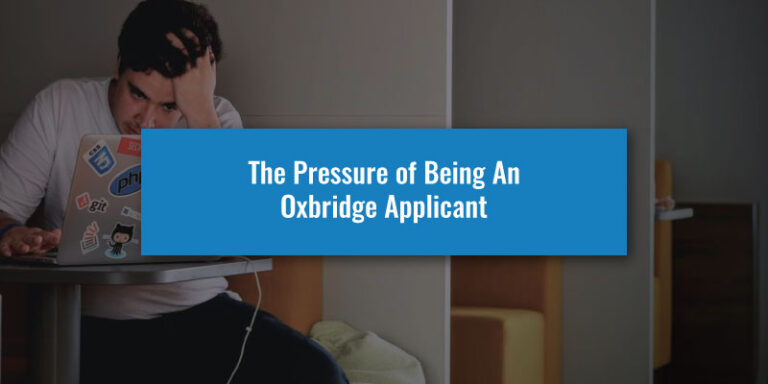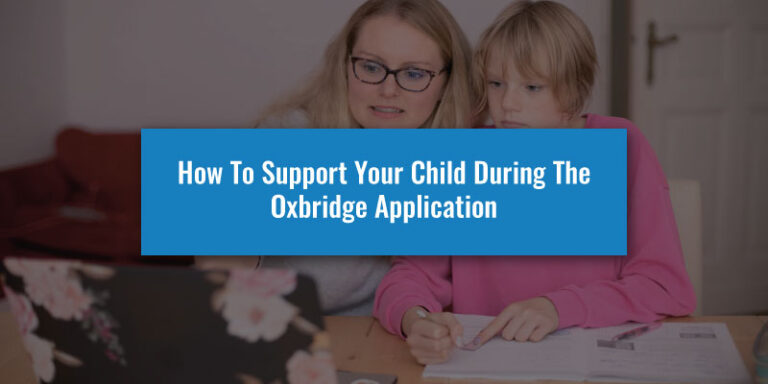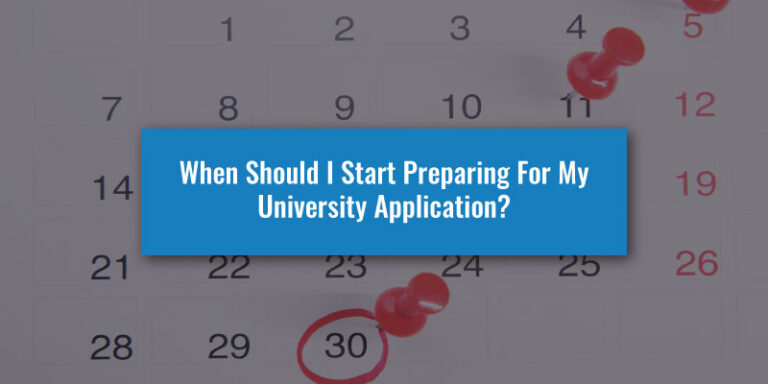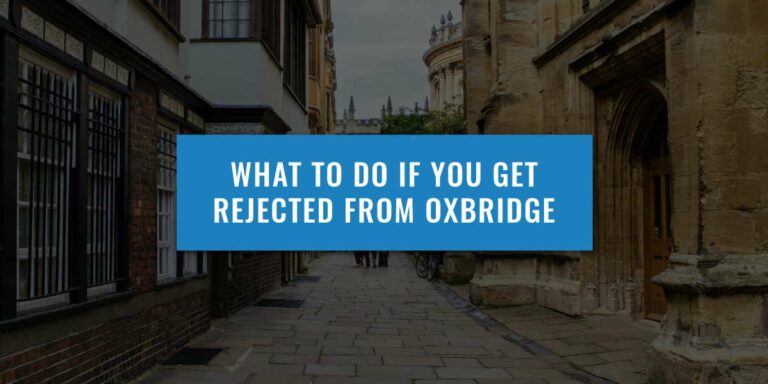All Oxbridge applicants know about Oxford and Cambridge’s reputation for their tough admissions process, particularly the Interviews. But how does the Interview process differ?
To provide you with some clarity to help you focus on the university you are applying to, rather than going for the general Oxbridge Interview approach when preparing, we highlight some of the main differences between Oxford and Cambridge Interviews.
Online Vs In-Person Interviews
One factor that Oxford and Cambridge both had in common was the fact that, since 2020, all admissions interviews have been held online. However, in 2025, the two universities will be taking different approach to interviewing candidates within the UK.
Firstly, it has been confirmed by tutors at Oxford that all interviews for applicants will remain virtual for at least the next five years. We learnt this through various sources during our trip to Oxford’s September 2023 Open Day, where some tutors did not seem enthusiastic about the choice due to the disconnect felt during virtual interviews.
However, it has been confirmed by the University of Cambridge that some (though not all) colleges will be holding in-person interviews for applicants within the UK. This means that applicants of any subject for the following colleges will need to attend their interviews on campus:
- Gonville & Caius College
- Pembroke College
- Selwyn College
- King's College
- Peterhouse College
- Trinity College
Applicants for all other colleges will be required to attend virtual interviews in the format they have been since 2020.
What’s interesting to note here is that this decision is mostly likely a test to determine the viability for full in-person interviews in the future. Whether this decision was made by the individual colleges or the university as a whole is unknown, although the choice for Oxford interviews to remain virtual was supposed made by the university rather than the colleges.
Although Oxford has apparently set a five-year continuation of virtual interviews, we may find them taking a U-turn on this decision if the 2023 Cambridge interviews garner positive feedback.
Oxbridge Colleges
The Oxbridge colleges handle your application and hold the Interviews themselves. You can see a list of Oxford Colleges here and Cambridge Colleges here. If your application is successful and you study at Oxbridge, the colleges are the main hubs of university life, providing food, accommodation, many tutorials and also social space.
There are two main differences to mention for Oxbridge Interviews and applications in terms of the collegiate system. The first is the way in which “pooling” occurs. This won’t apply to every Oxbridge candidate but is still worth bearing in mind. Let’s take a look at the differences between pooling at Oxford and Cambridge.
Oxbridge Interviews are hard to prepare for. We help you focus on the key points to articulate to demonstrate why you want to study at either University.
With over 95 hours of guided study (including One-To-One Tuition, Intensive Courses and Comprehensive Materials), our expert Oxbridge Interview support truly gives you an advantage that can make the difference between an offer and rejection.
Discover our Interview Programmes by clicking the button below to enrol and triple your chances of success.
What is the ‘winter pool’ system used by Cambridge?
Applicants to Cambridge will be invited to attend their Interview by the college handling your application. Students attend on that day and then return home, which, of course, depends if the Interview is online rather than in-person but the pooling still remains the same, it is just done online instead.
Students may be notified a couple of weeks after the Interview that they have been entered into the ‘winter pool’ (also referred to as the ‘inter-college pool’). If this is the case, then it could mean a few things. It might mean that the person who has entered the winter pool will be called back to Cambridge for an additional Interview at a different college to that which handled their application at the start. This additional Interview is in January.
Or, it might mean that the person who has been entered into the winter pool will be given an offer to study at a different college to that which handled their application, without a further Interview.
Finally, students may just be notified of entrance into the winter pool, and then the outcome of their application will eventually be handled by the original college of application – successful or unsuccessful. To summarise, this is the result of being placed in the winter pool:
- Some applicants may be asked to attend another Interview at a different College, usually in January.
- Some applicants may be offered a place at another College without further Interview.
- Some applicants may be ‘taken back’ by their original College and made an offer.
- Some applicants are unsuccessful, in which case they’ll be notified by their original College.
The pooling system used by Oxford
Oxford operates a different system for re-allocating candidates to a college different to their original choice. Rather than pooling at a later date, when applicants arrive for their Interviews at the beginning of December, they will stay for a few days. As mentioned earlier, this all depends on if the Interviews are held online or in-person. If they are online, the re-allocation process is still in the same format but it is carried out online instead.
During those few days after your Interview with your college of application, you may receive a notification while you are still in Oxford that you have been invited to Interview at a different college. This means that it could be very last minute, therefore, all applicants who are in Oxford should be keeping an eye out for an unexpected extra Interview (or a few extras) as this is a perfectly possible event. However, don’t try to read too much into it as colleges will call for extra Interviews for different reasons.
The number of Interviews you have therefore doesn’t indicate whether or not you have been successful, or whether you will end up in your original college. It simply means if you do have an Interview at a second college, there is a chance you will be accepted by that college rather than your original choice. Sometimes, even after a second Interview at a different college, you may just hear from your original one only.
Download our FREE 90-Page Interview Starter Guide
Our 90-page E-Book is filled with expert Interview Advice, common interview questions and first-hand interview experiences from successful Oxbridge applicants.
To access all this for free, just enter your name and email address and you’ll be sent the guide directly to your inbox.
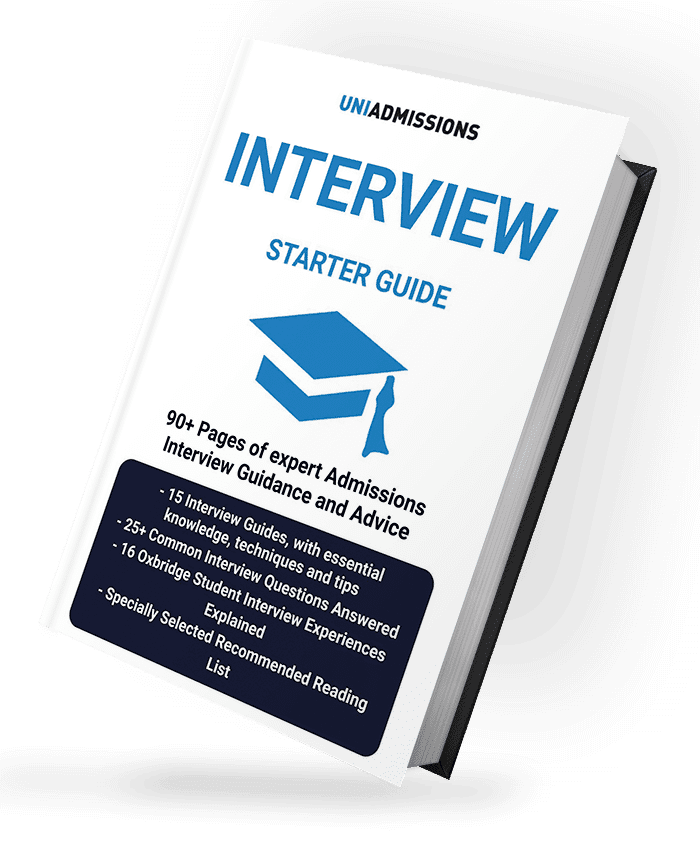
Course content and structure
There are some naming differences between Oxford and Cambridge teaching (the former using the term “tutorials” and the latter using the term “supervisions”), but this isn’t vitally important.
What is more useful for Oxbridge Interviews is knowing the difference between the course of application at one university compared to the other. Does it focus on a particular set of modules or topics which you would prefer? Are there areas of study which are set out differently? Make sure you talk about the course that the university provides. This means you talk about Oxford Maths and the modules rather than general Maths at a degree level, or even Oxbridge Maths.
If you are asked to justify your decision and can explain that you feel the course where you are applying better suits your academic interest, then you will come across much stronger in Oxbridge Interviews. Try to cover the following reasons:
- Motivation for the subject - this can be demonstrated through wider reading and work experience.
- Understanding that the course at Oxford or Cambridge will fit your interests - especially given the academic rigour and particular modules which make up the course.
- The hope to have the opportunity to learn in the tutorial or supervision system - this will enable a discussion of ideas and to be critiqued/taught by top academics.
Application process
The last difference we will go through is to do with the application process itself. Before Oxbridge Interviews, candidates are asked to submit a number of materials in support of their application. For both Oxford and Cambridge, you will have to fill out a UCAS form and complete your Personal Statement as usual.
There are then different Admissions Tests for each university. Applicants should check the requirements for their course (Oxford here and Cambridge here) for specific details. Cambridge also asks applicants to complete a Supplementary Application Questionnaire (SAQ) which is made up of eight sections and will be requested by email.
Make sure to check the deadline for this very carefully, and also to make sure that all the information you write is consistent with the rest of your application, as this is the main purpose of the SAQ.
Although there are a few differences, it is important to remember that both Universities vigorously test their applicants and neither University Interview process is easier. Both look for candidates that can answer Interview questions directly, coherently and with an implication of their overall enthusiasm for their subject. They want to give offers to passionate students who they feel will work well in the collegiate system.
We hope this has given you some clarity on how the Interviews differ between Oxford and Cambridge.Good luck with your Oxbridge Interviews!
Learn how to nail the hardest Oxbridge Interview questions through Mock Interview practice and One-To-One Tuition.
Our Interview Programmes are designed to give you the highest chance of an Oxbridge offer at the Interview stage. Your expert Oxbridge tutor will work with you based on your specific subject and personal circumstances to craft a strong Interview strategy that truly gives you an advantage that can make the difference between an offer and rejection.
Discover our Interview Programmes by clicking the button below to enrol and triple your chances of success.



